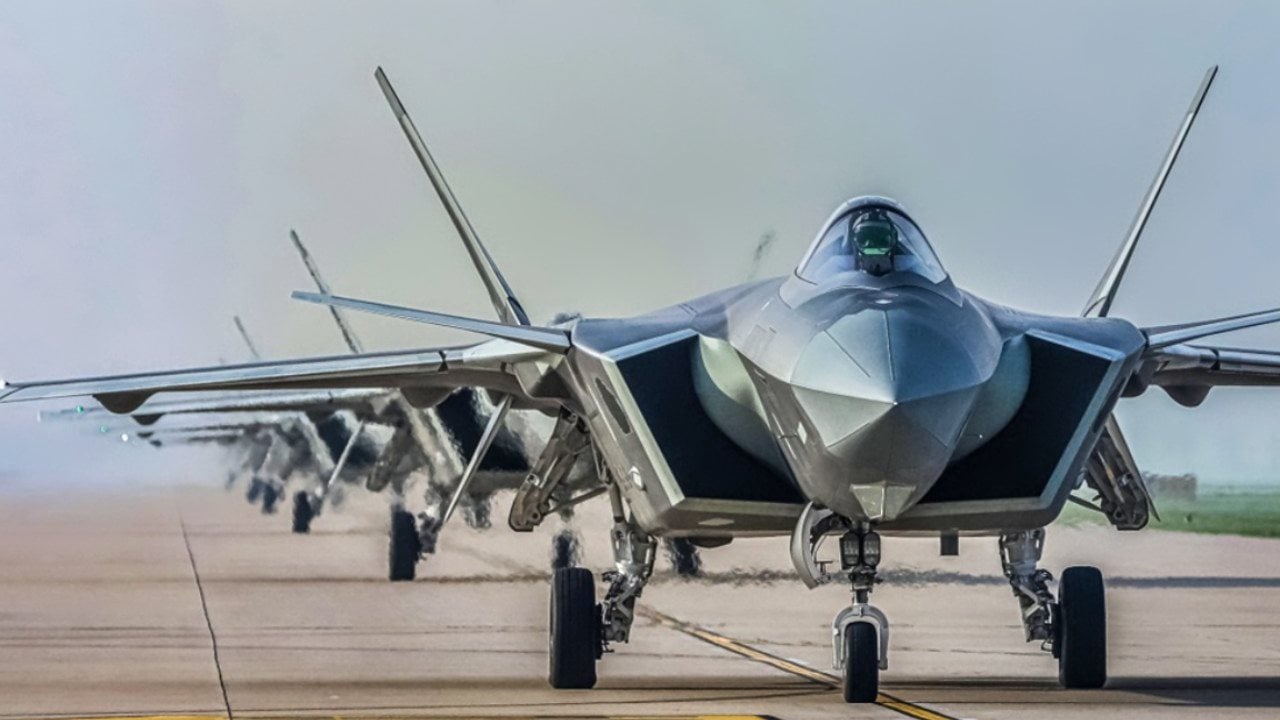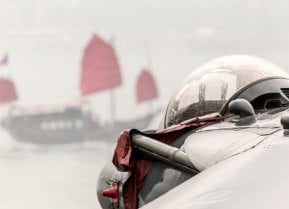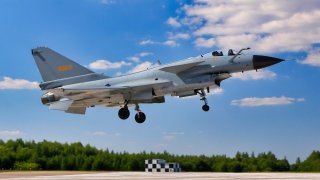Taiwan Must Prepare for War with China
In short, China has deprived itself of options short of war. It may not want war, but years of overbearing diplomacy may compel it to go to war. It has little alternative.
Economics pundit Noah Smith reports that a meme has been circulating among China-watchers of late. The meme holds that if you would just travel to China you would realize that China doesn’t want a war in the Taiwan Strait, or anywhere else. This is a form of argument from authority or, as Noah puts it, argument from tourism. Now, he and I don’t run in the same circles, but I’ve been hearing variants of the same storyline in recent months. Some who tout it claim, like Noah’s interlocutors, that China doesn’t want war. If not, they imply we should all heave a sigh of relief and stop preparing for Pacific combat. Other travelers maintain that China has burgeoned into such an industrial and military colossus that no eyewitness could countenance opposing it. Abandon all hope. Etc. The common denominator among these arguments from authority is their upshot: stand down. You need not—or cannot—buck China’s will.
To which I reply: Of course China doesn’t want a war over Taiwan. So what?
After all, wannabe conquerors love peace! They want to win without fighting. They long to cow their antagonists into submission, inducing them to lay down arms without putting up a fight. In so doing they spare themselves the ravages and unintended consequences inherent in the clangor of arms. That mode of proceeding has been baked into Chinese strategic culture since antiquity—witness the writings of Sun Tzu. Or ask Western martial sage Carl von Clausewitz. Writes Clausewitz, who took the field against Napoleon, the French god of war, “the aggressor is always peace-loving (as Bonaparte always claimed to be); he would prefer to take over our country unopposed.” Bottom line: to prevent an aggressor from triumphing without firing a shot, “one must be willing to make war and be prepared for it. In other words it is the weak, those likely to need defense, who should always be armed in order not to be overwhelmed. Thus decrees the art of war.”
Take it from the art of war. Taiwan and its friends had better arm themselves—pronto—lest freedom-loving islanders suffer a Napoleonic fate.
Seldom do senior officials speak so plainly. Secretary of Defense Lloyd Austin was correct to tell this year’s Shangri-la Dialogue that “war or a fight with China is neither imminent” nor “unavoidable.” That comes as cold comfort. Chinese Communist Party (CCP) magnates may not, and in all likelihood do not, relish war. But that doesn’t mean they are prepared to forego or indefinitely postpone their goals for the sake of regional concord. Just the opposite. The CCP leadership has made it glaringly clear that it will unsheathe the sword should it see fit. Short of that, it pursues warlike policies and strategies on a 24/7/365 basis, on the logic that peacetime politics is war without bloodshed.
Any strategy premised on communist goodwill is a strategy fated to fail. China will not relent in the Taiwan Strait. America, its allies, and its partners must deter it by mounting concerted, convincing, day-in-and-day-out displays of power and resolve.
Defense commentators are blunter than officials on occasion. Over at Defense One, science and technology editor Patrick Tucker hints at how China’s winning-without-fighting strategy works. The inauguration of William Lai, Taiwan’s latest Democratic Progressive Party president, occasioned the latest military outburst out of Beijing. Following Lai’s inauguration People’s Liberation Army warships and warplanes fanned out around Taiwan’s environs for two days of drills dubbed “Joint Sword 2024.” Chinese officialdom crowed that the maneuvers had meted out “strong punishment” for “separatist acts” on the part of the leadership in Taipei. According to Tucker, Beijing has talked itself into believing that it can overawe the balky island through domineering conduct underwritten by shows of naval and military might.
The conceit being that Taiwan’s government, society, and armed forces would rather yield to China’s blandishments than fight against daunting odds to perpetuate their de facto sovereignty.
In other words, Chinese leaders believe playing head games with Taiwan’s leadership could deliver their most treasured goal, rule over the island, without firing a shot. If that happened Communist China would have scaled to the pinnacle of strategic excellence, achieving its aims at minimal cost, danger, and diplomatic and economic blowback. Clausewitz would instantly grasp China’s approach. The Prussian soldier-scribe declared that there are three ways to prevail in martial strife. One, vanquish the foe on the battlefield and impose terms. That charts the swiftest and surest route to victory, but also the one entailing the most forbidding hazards. Two, convince hostile leaders their predicament is impossible. The conviction being that rational but disheartened decisionmakers will decline to fight a fight they deem unwinnable. Or three, persuade hostile leaders they can’t win at a cost that’s affordable to them. Again, the Clausewitzian proposition is that rational cost/benefit analysis could net victory without violence.
The latter two methods operate in encounters short of violence as well as in open war. These are Beijing’s methods of choice in the Taiwan Strait and elsewhere in maritime Asia. They inhabit the realm of coercion and deterrence.
But the CCP leadership has a problem. Namely, the leadership seems to have little idea of how to bring about a Taiwanese capitulation without unleashing violent force. Think of strategy as a theory of cause and effect. Strategy postulates that if friendly forces do X, Y, and Z they will generate desirable effects A, B, and C—the ultimate effect being military victory. Now consider China’s theory of success, such as it is. CCP overseers demand that Taiwan consent to its own death as an independent polity simply because China’s armed forces now outclass Taiwan’s by almost any conceivable measure. But what precisely does staging a military deployment—no matter how menacing—do to induce President Lai’s, or anyone else’s, leadership in Taipei to commit assisted suicide?
Precious little.
No obvious mechanism explains how cause begets effect in Chinese strategy, and so China’s theory of success fails the test of strategic and political reality. Beijing demands everything from the islanders yet offers them nothing. It has placed Taiwan on “death ground,” to borrow from Sun Tzu, and the revered general of yore advises a combatant bestriding death ground to fight to its utmost. Taiwan will. You would think Sun Tzu’s disciples on the mainland would get this intuitively. But they don’t.

It turns out nonstop bombast backed by cavalier displays of firepower makes a futile strategy for China, and yet that’s the only trick the CCP leadership knows how to play. Through misbegotten strategy, in short, China has deprived itself of options short of war. It may not want war, but years of overbearing diplomacy may compel it to go to war. It has little alternative.
That’s what we in the biz call self-defeating behavior. Nice work, Xi & Co.

About the Author: Dr. James Holmes, U.S. Naval War College
Dr. James Holmes is J. C. Wylie Chair of Maritime Strategy at the Naval War College and a Distinguished Fellow at the Brute Krulak Center for Innovation & Future Warfare, Marine Corps University. The views voiced here are his alone.
Image Credit: Shutterstock.


